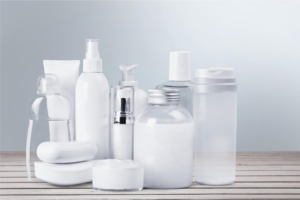
Adapalene, a widely used retinoid in acne treatments, is in high demand globally. Whether you’re a pharmaceutical company, wholesaler, or distributor, selecting the right adapalene supplier is a critical decision that impacts product quality, regulatory compliance, and business reputation. This guide will walk you through everything you need to know about choosing the best adapalene supplier, including regulatory considerations, manufacturing standards, licensing requirements, and more.
Why Choosing the Right Adapalene Supplier Matters
Adapalene is a highly specialized active pharmaceutical ingredient (API) that requires stringent manufacturing, quality assurance, and compliance protocols. Partnering with the right supplier ensures:
- High-quality products that meet global regulatory standards.
- Consistent supply chains to prevent disruptions.
- Ethical manufacturing practices and compliance with industry guidelines.
Key Factors to Consider When Choosing an Adapalene Supplier
Regulatory Compliance and Approvals
Regulatory compliance is the cornerstone of choosing a reliable supplier. Look for suppliers that adhere to global pharmaceutical regulations. Key regulatory agencies include:
- US Food and Drug Administration (FDA)
Suppliers must be registered with the FDA and have their manufacturing facilities inspected to ensure compliance with Current Good Manufacturing Practices (CGMP).- FDA Drug Master File (DMF): Verify if the supplier has a DMF submission for adapalene. This ensures the product meets quality standards.
- European Medicines Agency (EMA)
For European markets, ensure the supplier complies with EMA guidelines and holds a Certificate of Suitability (CEP) for adapalene production. - World Health Organization (WHO)
Check if the supplier is WHO-GMP certified, which indicates compliance with international standards. - Other Regional Agencies
- Medicines and Healthcare products Regulatory Agency (MHRA) in the UK.
- Central Drugs Standard Control Organization (CDSCO) in India.
- National Medical Products Administration (NMPA) in China.
A compliant supplier will provide the necessary documentation, such as GMP certificates, DMF, CEP, and audit reports.
Manufacturing Facility Standards
The quality of adapalene depends heavily on the supplier’s manufacturing processes. Evaluate their facilities based on these criteria:
Explore a leading manufacturer of APIs.
With over 10 years of expertise, we ensure GMP compliance and provide reliable, high-quality solutions.
- CGMP Compliance
Ensure the facility adheres to CGMP guidelines for cleanliness, process controls, and quality assurance. - API Production Capacity
Assess if the supplier has the capacity to meet your demand consistently. Scalable production ensures a steady supply chain. - Advanced Technology
Suppliers using modern equipment and technology are more likely to produce high-quality APIs with minimal impurities. - In-House Quality Control (QC) Labs
Check if the supplier has QC labs to perform analytical testing at every stage of production. This ensures the final product meets pharmacopoeia standards (IP,BP,USP,EP etc.) - Environmental Compliance
A responsible supplier adheres to environmental regulations for waste management, emissions, and sustainability.
Licensing and Certifications for Adapalene Supplier
A reputable supplier will have the necessary licenses and certifications to operate legally and ethically. Key licenses include:
- Manufacturing License
This ensures the supplier is authorized to produce pharmaceutical ingredients. - Import/Export License
For international supply, the supplier must have valid import/export licenses for seamless global transactions. - ISO Certifications
- ISO 9001: Quality management systems.
- ISO 14001: Environmental management.
- ISO 45001: Occupational health and safety.
- Regulatory Inspections and Audits
Confirm if the supplier has passed inspections by global agencies like the FDA, EMA, or CDSCO.
Quality Assurance and Testing for Adapalene Supplier
High-quality adapalene is essential for ensuring the safety and efficacy of finished products. Evaluate the supplier’s quality assurance protocols:
- Pharmacopoeial Compliance
Verify if the adapalene meets pharmacopeia standards (e.g., USP, EP, IP). - Stability Testing
Ensure the supplier conducts long-term and accelerated stability studies to guarantee the product’s shelf life. - Impurity Profiling
Check if the supplier provides detailed impurity profiles to assess the purity of the API. - Batch Consistency
Ask for Certificates of Analysis (COAs) from multiple batches to ensure consistent quality.
Track Record and Reputation
Research the supplier’s market presence and customer feedback to gauge reliability. Key areas to investigate include:
- Years of Experience
An established supplier with a long track record is more likely to have refined manufacturing and quality processes. - Customer References
Ask for testimonials or case studies from other pharmaceutical companies that have partnered with the supplier. - Global Reach
A supplier with a strong international presence is more likely to understand and comply with multiple regulatory frameworks.
Pricing and Contract Terms
While cost is a significant factor, it should not compromise quality. Evaluate:
- Competitive Pricing
Ensure the pricing aligns with market standards without sacrificing quality. - Flexible Contract Terms
Look for suppliers who offer flexible contracts to accommodate changes in demand. - Supply Chain Reliability
A reliable supplier should have contingency plans to mitigate delays or disruptions.
Technical Support and Documentation
A reliable supplier provides comprehensive technical support and documentation, including:
- Drug Master File (DMF) submissions.
- Certificates of Analysis (COAs) for each batch.
- Material Safety Data Sheets (MSDS).
- Regulatory filings and compliance reports.
The Role of API Manufacturing Facilities in Adapalene Production
Active Pharmaceutical Ingredient (API) manufacturing facilities play a vital role in determining the quality of adapalene. A good API facility should:
- Follow Strict CGMP Standards
Ensure production processes are compliant with FDA, EMA, and WHO guidelines. - Utilize Advanced Analytical Techniques
High-performance liquid chromatography (HPLC), gas chromatography (GC), and mass spectrometry (MS) should be employed for quality testing. - Focus on Environmental Responsibility
API facilities should manage waste and emissions to meet environmental regulations. - Invest in R&D
A robust R&D team ensures innovation and improved manufacturing processes for high-quality adapalene.
Regulatory Documentation Checklist
Before finalizing a supplier, ensure they can provide the following regulatory documents:
- GMP Certificate.
- FDA or EMA approval documentation.
- DMF registration number.
- CEP (if applicable).
- Batch-specific COAs.
- Stability testing reports.
Conclusion
Choosing the right adapalene supplier is a critical step in ensuring the quality and success of your acne treatment products. Focus on regulatory compliance, robust manufacturing practices, and a proven track record to make an informed decision.
Always prioritize quality over cost, as cutting corners can lead to non-compliance, product recalls, and potential harm to patients. By carefully evaluating suppliers against these criteria, you can establish a reliable and long-term partnership that meets both regulatory and business needs.
Why Choose Chemignition Laboratory as Your Adapalene Manufacturer?
As a leading manufacturer and supplier of adapalene API, Chemignition Laboratory offers unparalleled expertise in manufacturing. Here’s why acne product developers trust us:
- GMP-Certified Production: Our state-of-the-art facilities ensure premium quality at every stage.
- Regulatory Expertise: We handle DMF registration and compliance with global regulatory standards.
- Scalable Solutions: Whether you need small-scale production or large-volume batches, we’ve got you covered.
- Customized Offerings: From purity levels to packaging, we tailor our solutions to meet your needs.
- On-Time Delivery: Our robust supply chain ensures timely delivery, every time.
FAQs
What is adapalene, and why is it important to choose a reliable supplier?
Adapalene is an active pharmaceutical ingredient (API) commonly used in acne treatments. Choosing a reliable supplier ensures the product meets quality standards, regulatory compliance, and is safe for end-users.
What certifications should an adapalene supplier have?
A trustworthy supplier should have the following certifications:
- GMP (Good Manufacturing Practices) certification.
- Regulatory approvals from agencies like the FDA, EMA, or WHO. (If applicable)
- Drug Master File (DMF) registration (If applicable)
- Certificate of Suitability (CEP) for European markets.
- Certificate of analysis (COA).
How do I verify the regulatory compliance of an adapalene supplier?
Ask the supplier for regulatory documentation, including GMP certificates, FDA audit reports, DMF submission numbers, and stability testing data. You can also check online regulatory databases where available.
What factors should I consider in the supplier’s manufacturing facility?
Evaluate the manufacturing facility for:
- Compliance with CGMP guidelines.
- Advanced technology and modern equipment.
- In-house quality control (QC) labs for thorough testing.
- Environmental compliance and sustainability practices.
How important is the supplier’s track record and reputation?
A supplier’s experience and market reputation are critical indicators of reliability. Check for:
- Years of experience in API production.
- Customer testimonials and references.
- A proven history of meeting international regulatory standards.
What documentation should I request from an adapalene supplier?
You should request:
- Drug Master File (DMF). (If applicable)
- Certificates of Analysis (COAs) for multiple batches.
- Material Safety Data Sheets (MSDS).
- GMP and ISO certifications.
- Regulatory inspection reports.
Can a supplier be both cost-effective and reliable?
While cost is important, it should never compromise quality. Choose a supplier that offers competitive pricing without cutting corners on regulatory compliance and product quality.
What is a Drug Master File (DMF), and why is it important?
A DMF is a detailed document submitted to regulatory authorities like the FDA. It contains confidential information about the API’s manufacturing, testing, and quality control processes. A supplier with a registered DMF demonstrates compliance and reliability.
What should I do if I’m unsure about a supplier’s credibility?
Request third-party audits, visit the manufacturing facility if possible, and consult with regulatory experts to verify the supplier’s credibility.
What role does licensing play in supplier selection?
A licensed supplier ensures legal and ethical production of adapalene. Important licenses include:
- Manufacturing license.
- Import/export license for international transactions.
- Regulatory approval licenses for specific markets.


